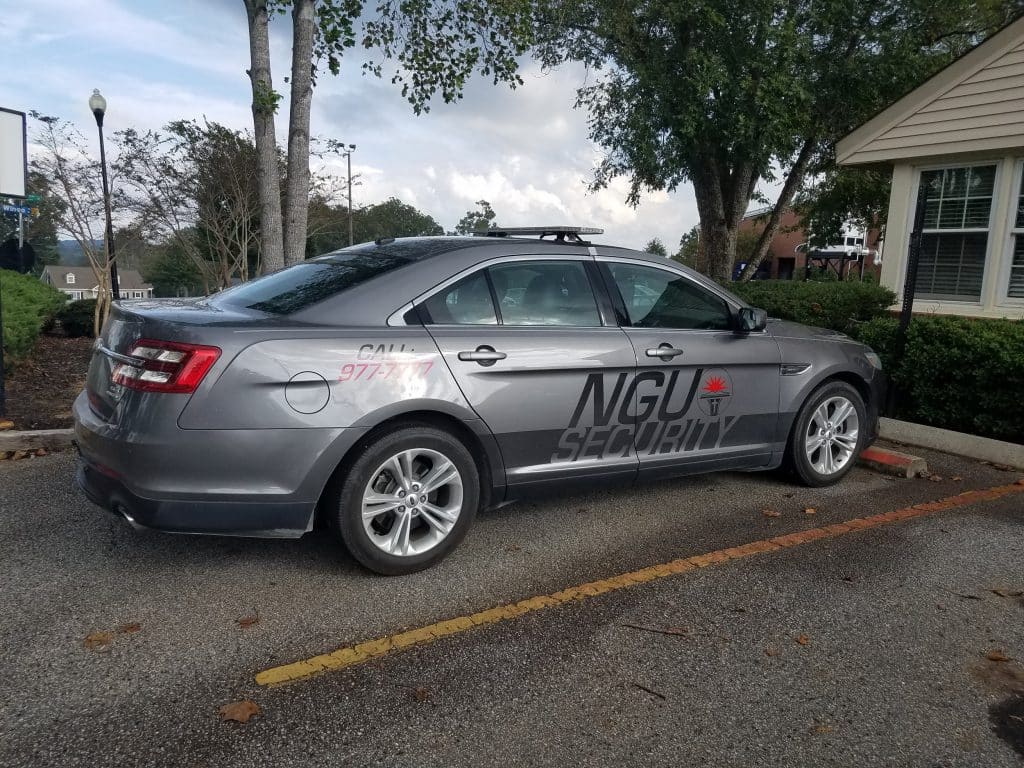
Campus safety as a culture at NGU
Lane Koch, Senior Associate Writer
In the spring of 1986 Jeanne Clery, 19, returned to Lehigh University after spring break. Students in her dorm often left doors propped open with pizza boxes in case they forgot their keys. Campus guards noticed and deciding they did not want to receive calls all night to let students in, left the doors propped. That night Clery was brutally raped and murdered in that same dorm.
Clery’s parents, Connie and Howard, sued the university and started advocacy groups igniting a national discussion of safety regulation on college campuses. Their actions led to numerous laws being enacted most notably, the Clery Act which stated that ever university must complete a yearly crime report that self-reports the number of certain types of crimes on and places contiguous to campus.
It is thirty-two years later, and the concept of campus security has changed radically due to what came to be known as the Clery Report.
“When I started out the Clery report was just a few pages,”said Rick Morris Chief of NGU Campus Security. “Now it is about this size [size of a 5-inch binder] and includes reports on homicide, sexual assault, stalking, rape, arson and domestic violence to name a few.”
The Clery Act changed things for more than campuses, but parents of prospective students as well. “Parents and students really shop for school’s security now,” Morris confirmed.
And for those shopping, NGU seems a school worth considering. The NGU Clery report for 2017 reports lower, and in some cases nonexistent, crime rates than in previous years in all aspects except for one—burglary. The report documented 7 cases of burglary in 2017, increased from 4 cases in the previous year. Anderson University is also up as 7 from the previous year’s 5 cases.
“I think our ratings could always be better. The Clery report has a narrower definition of crime’s than we might have. To the law, burglary is breaking in and stealing–like breaking into a home. Larceny is stealing someone’s belongings when they step away,” Morris explained. “Under the Clery report they would both be reported as burglary. Or if I step towards you quickly and you feel threatened, that is assault.”
While Campus Security aggregates this report, they are not the only department involved.
“I work with 83 CSA’s on campus to help monitor and identify crimes that may not get reported to campus security. That is not including RA’s and RD’s,” Lieutenant Charles Snook, responsible for creating the report, stated. “Campus Security Authorities are faculty and staff members that maintain closer relationships with students than the average professor. They may be a faculty advisor for a club on campus that students may confide in.”
But how does NGU attain such a low crime rating?
Photo taken by Lane Koch
“We enact an aspect of community policing,” Morris explained. “We don’t want to stop crime as much as deescalate the situation before It happens. My officers are constantly there patrolling, being visible in areas where students are. We also use a DLR (doesn’t look right) system, to engage situations with potential threats.”
And any student at NGU knows that is true. Outside the chapel, in the café, in the parking lots—they are everywhere.
“Our officers do care. It’s [community policing] not just a policy, it’s a culture. We care,” Snook interjected.
“I think it [the clery report] shows on several levels we have a very good campus; a safe campus,” Snook finished. “Faculty and Staff are involved in student’s lives more so than necessarily other schools which prevent problems before they happen and make people less likely to break the law.”
Take a look at the Clery Report for 2017 here.

